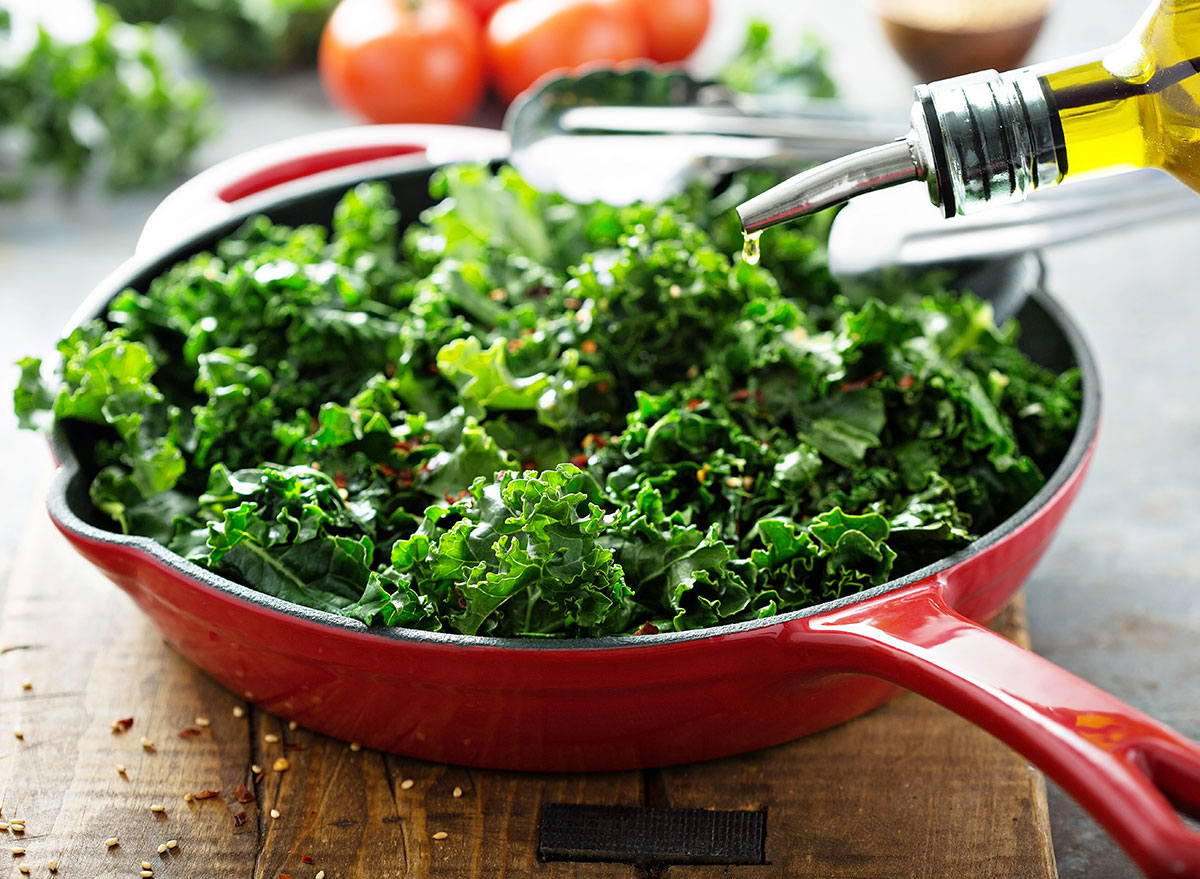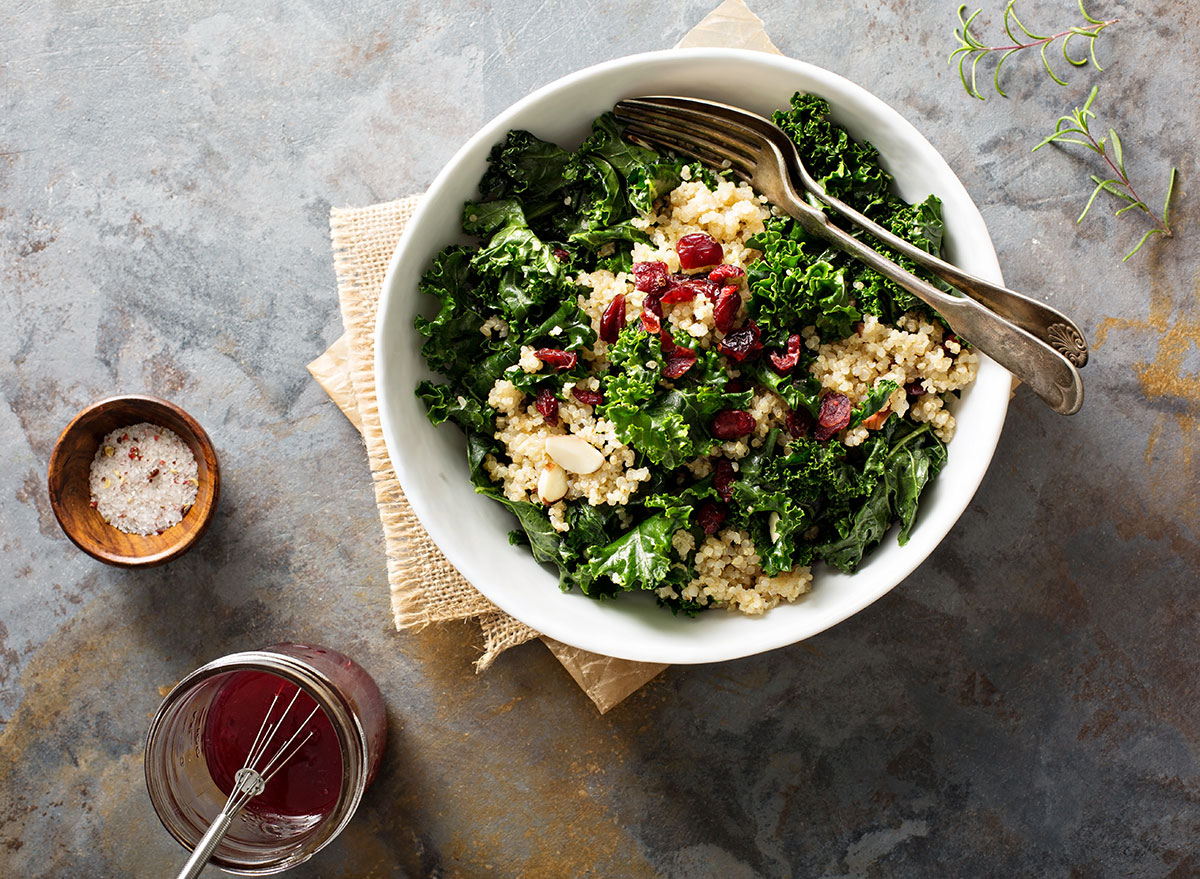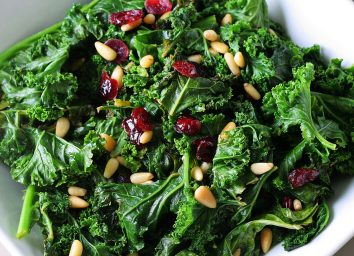One Major Effect of Eating Kale, Says Dietitian

Kale is known as a superfood, and when you take a look at the nutrition value of this leafy green, you'll understand why. This leafy green contains important vitamins, fiber, and antioxidants, and it can help us fight off colds, improve our bone health, and even help us have a better hair day.
One major side effect of eating kale is the heart-healthy properties it has from its high levels of vitamin K.
"In fact, one cup of raw kale contains nearly 100% of your dietary vitamin K needs and one cup of cooked kale provides you with over 4 times the amount!" says registered dietitian Amy Goodson MS, RD, CSSD, LD author of The Sports Nutrition Playbook. For comparison, a cup of iceberg lettuce—another leafy green—only contains 11% of your daily vitamin K needs.
Read more to find out how kale supports heart health, and for more healthy eating tips make sure to check out The 7 Healthiest Foods To Eat Right Now!
How kale can help protect your heart

Vitamin K is a fat-soluble vitamin that is crucial in forming necessary blood clots in our bodies, as well as maintaining and building strong bones, but a lesser-known benefit it carries is being able to help reduce the risk of cardiovascular disease. And while more research still needs to be done around this topic, the results so far have been very promising.
A leading cause of heart disease is the calcification of our vascular system, which can lead to clogged and hardened arteries. According to Harvard Health, vitamin K can aid in the production of MGP (or matrix Gla proteins), a protein that helps our bodies avoid artery calcification.
"In addition, vitamin K may help keep blood pressure low by preventing mineralization, where minerals build up in the arteries. This can help make it easier for your heart to pump blood through the body," says Goodson.
Although vitamin K can be beneficial to everyone's heart health, a 2017 report revealed that this is especially true in high-risk patients and those with kidney troubles as well. This same report also concluded that vitamin K can be made even more beneficial to our heart when paired with vitamin D.
READ MORE: One Major Effect Vitamin K Has on Your Heart, Says New Study
How to enjoy kale for heart health
If you love the taste of kale, you can enjoy this superfood in a breakfast casserole or even as a base for gnocchi.
If you want the nutrients but hate the way it tastes, "try hiding it in a protein smoothie with fruit and milk, or adding it to dishes your family already loves like spaghetti with pasta sauce. Kale can also be sautéed and used as a topping on pizza," recommends Goodson.
However you end up choosing to eat your kale, you're guaranteed to get tons of health benefits from just one serving, including the much lesser-known heart health benefit of eating it.
The takeaway
Many researchers agree that in order to determine just exactly how vitamin K helps us prevent cardiovascular disease, as well as how much would be recommended for this prevention, more studies and trials need to be done.
What we can take away from the existing research is that along with a healthy diet, regular exercise, and stress reduction, kale's high levels of vitamin K can help us work toward protecting our heart health.
For more healthy eating news, make sure to sign up for our newsletter!
Read these next:








